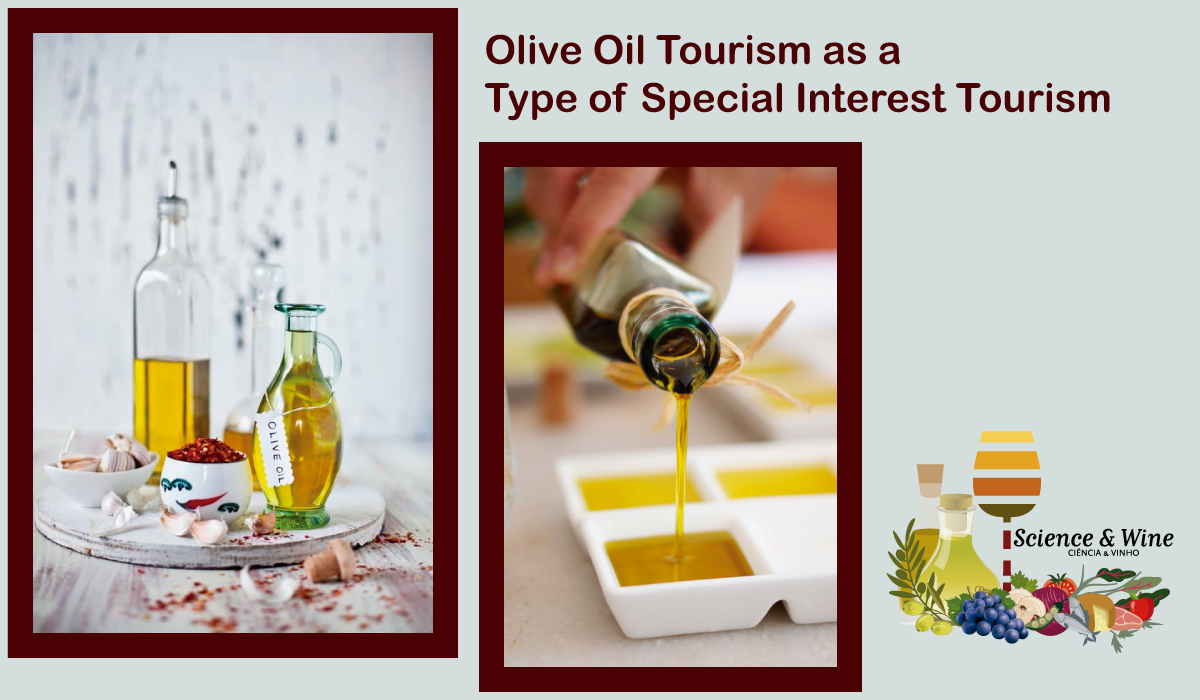Olive oil tourism is a burgeoning activity, the emergence of which is linked to products developed in rural olive producing areas, offering an opportunity to diversify the olive monoculture. In some of these areas, olive cultivation is the main source of livelihood, and olive oil tourism represents an avenue for diversification for the olive oil companies established there.Such is the interest in this type of tourism—from a social, economic, and even political viewpoint—that many oil mills and cooperatives are starting to develop this activity. This entails converting the mill to a place that is no longer merely a factory but a unique space where visitors can enjoy a tourist experience. These spaces also serve as informative components, providing insights into the culture of olive oil, its health properties, and the cultural and social heritage of the environment where the activity is carried out. At the same time, they encourage the tourist to become ambassadors for this product, as it satisfies their needs and wants and lives up to their expectations.

This study analyzes olive oil tourism as a type of special interest tourism (SIT). In accordance with the conceptual proposal presented here, it can be concluded that the two key dimensions in the characterization of olive oil tourism as SIT are experience and sustainability. These two indicators have the greatest weight and are where companies should center their attention in terms of their olive oil tourism offer, bearing in mind the importance that the olive oil tourist assigns to these dimensions. This provides impetus to experiential tourism products and the positioning of this type of activity in more distinctive segments such as “foodie tourism”. At the same time, the findings will encourage companies to commit to preserving the environment, conserving the ethnological heritage and showcasing the local gastronomy, consequently contributing to the development of rural, olive oil producing communities.

At a practical level, this research has implications for both public administration and private or corporate management. With regard to the former, it could contribute to the promotion of rural development plans, based on the olive oil tourism experience as one of the key dimensions. Furthermore, it could lead to olive grove landscapes being nominated for inclusion on UNESCO’s list of intangible cultural heritage of humanity. The scope of UNESCO’s work in this regard centers on the tourist use, showcasing, and conservation of unique spaces—in this case, olive groves and olive oil heritage—with the aim of bolstering the cultural heritage value and promoting local culture.From a business perspective, olive oil tourism is a way for olive oil producing companies to diversify their businesses. To this end, they should design experiential tourism products and collaborate with tourist entities in the destination, whether other olive oil mills, restaurants, or accommodation providers, thereby facilitating the complete experience as a destination and special interest tourism. On the other hand, this study can help encourage companies to allocate more resources to implementing environmental conservation measures through integrated production techniques, involvement in sustainable projects, and the production of organic olive oils, all of which are closely aligned with olive oil tourists’ awareness and the aim of supporting the “experience” dimension based on sustainable values.
See all about this study at: Sustainability2020, 12(15), 6008; https://doi.org/10.3390/su12156008


[…] Read more at: https://www.ciencia-e-vinho.com/2020/09/02/olive-oil-tourism-as-a-type-of-special-interest-tourism/ […]